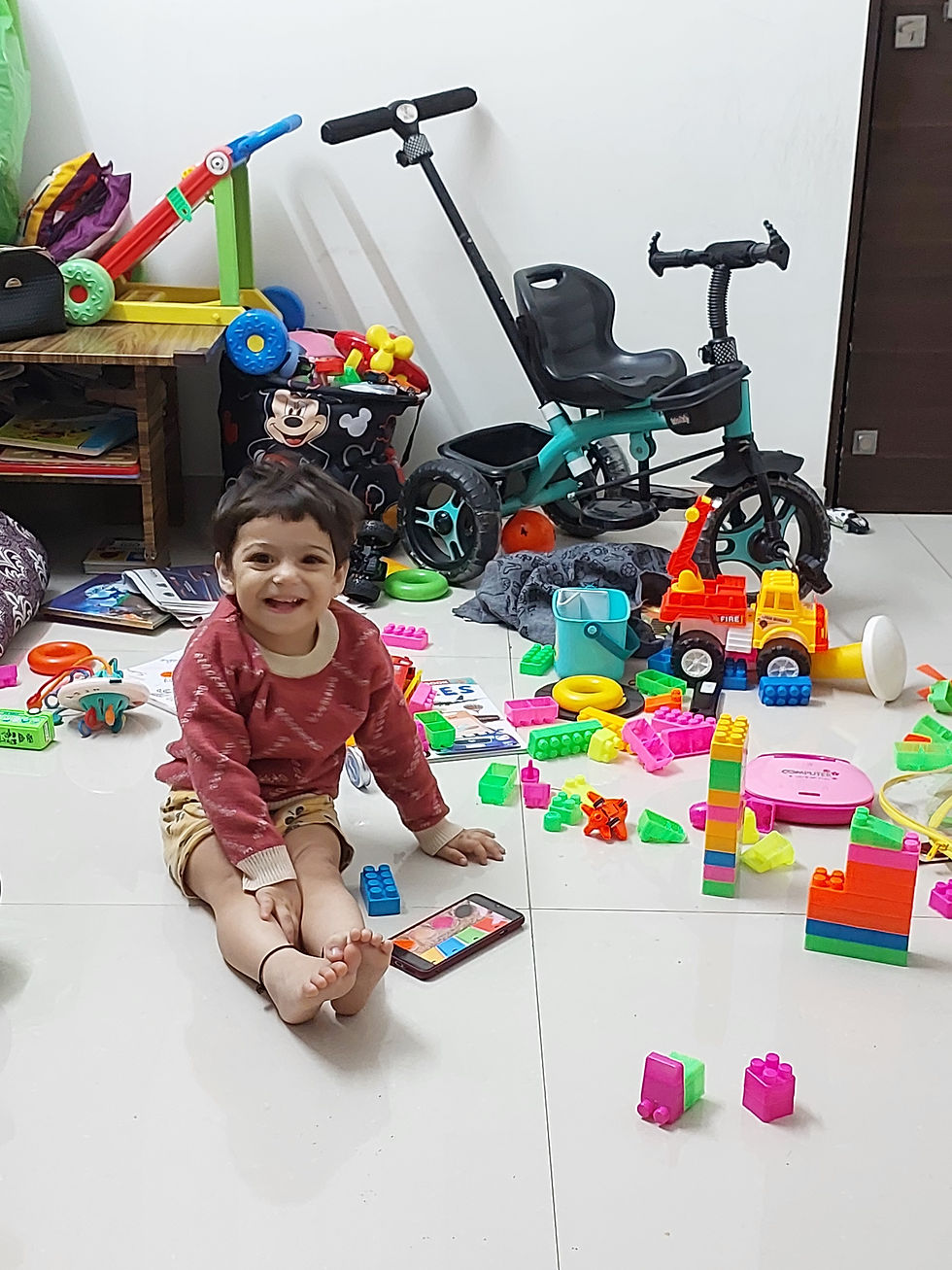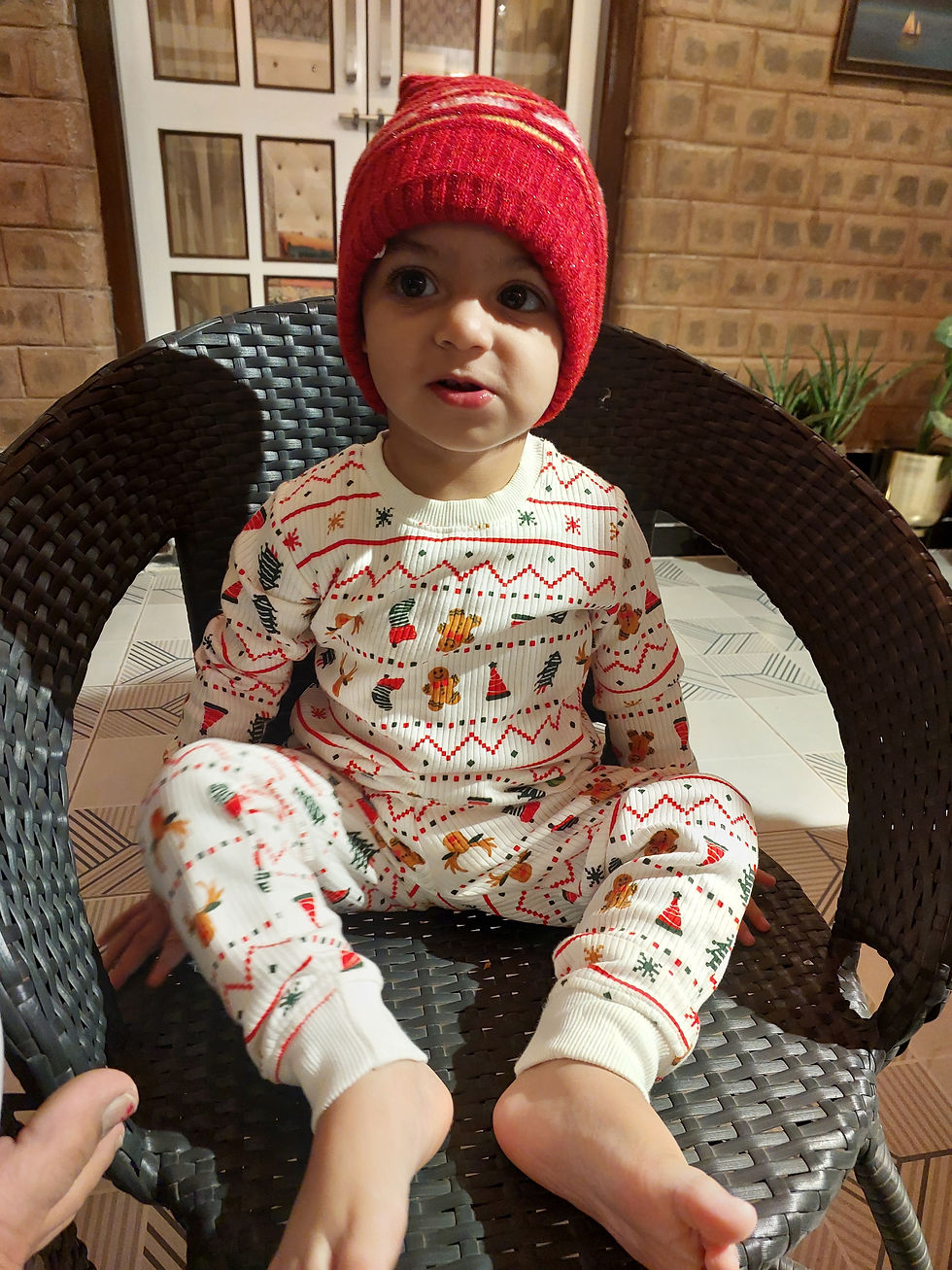My Breastfeeding Journey
- Sayali Sankhe
- Dec 16, 2024
- 4 min read
Like any expectant mother, I had read extensively and was preparing myself to breastfeed my baby smoothly. However, life had different plans. My breastfeeding journey didn't start in the first few days, which left me feeling increasingly depressed as time went on, wondering why I wasn't lactating yet. Nothing seemed to calm my anxious mind, which only made my body more exhausted. When I finally managed to breastfeed my baby, it became even more stressful due to various challenges during each nursing session. Sometimes the baby wouldn't latch properly, causing pain, or would cluster feed, or I felt there wasn't enough milk supply (at least my mind made it seem that way). I followed all the advice from the lactation consultant, suggestions from elders, maintained a proper diet, and consumed lactation bars and laddoos. Yet, why couldn't I satisfy my baby's hunger? This question drove me crazy. I was exhausted and sleepy, but my mind was always alert.

It quickly became clear that I was experiencing PPD. I would cry and get upset over trivial things, and despite having support from everyone, I felt isolated and ignored. I shared all my emotions with my mom and husband, yet it still wasn't sufficient. I felt as though I was losing my sense of self and wasn't connecting with my baby. The persistent worry of "what if he doesn't love me" continued to trouble me.
Finally, after talking to several new mothers, I felt relieved knowing I'm not alone in this experience. While the situations vary for everyone, each mother faces this phase. I decided to focus on overcoming it soon. The day I resolved to prioritize my mental health, so I could care for my baby and enjoy quality time with him with a joyful mindset, I stopped worrying about how I feed my baby.

It was challenging. Initially, we attempted combination feeding (breastfeeding, expressed milk, and formula). My baby experienced reflux problems, making it hard for him to adapt to this change. He would vomit after every feeding, even after burping. This repeatedly caused me to question whether I was doing the right thing. After four months, we decided to introduce semi-solid food, starting with banana puree. Surprisingly, he accepted it better than milk and stayed full longer, which allowed me to rest more. However, the nights remained difficult.
Gradually, we started introducing small amounts of fruit and vegetable purees during meal times and later added homemade cerelac (khimati) for lunch and dinner. This significantly reduced the stress of breastfeeding. We then discontinued formula and expressed milk feeds, switching to breastfeeding for milk. Formula milk was used only if needed for the purees. By the end of the 7th month, he was comfortably eating a variety of mashed foods, so we completely stopped using formula. At this point, it was breastfeeding on demand along with four meals. Ultimately, after 1 year, we were able to introduce him to the same food we ate (though less spicy).

It's been 3 weeks now, and he is completely weaned off. Today, when I reflect, I feel happy and proud that we made the right decision to prioritize taking care of myself first. If I had continued listening to the visiting aunties insisting on only breastfeeding and claiming I wasn't producing enough milk for my baby, I would have gone insane. Even then, I would receive stares from many women upon hearing that I was still breastfeeding after a year. It made me wonder how our society views mothers as machines—first for baby-making, then for milking—and expects them to seamlessly navigate this complex process. Receiving such strange suggestions and comments from women who have experienced this themselves amazes me a lot. In the early days, when I thought I would end this breastfeeding journey after 6 months, I'm glad that with the right steps at the right time, I was able to continue breastfeeding him for 19.5 months. Like pregnancy, it wasn't easy or smooth, but we made it! If you ask me now, I miss those nursing sessions—those few minutes were sometimes the only time in the day when he would be with me, with that comforting smile, and the various positions he wanted to feed in, making me wonder if I had given birth to a calf or a monkey because that's not how a human baby can be fed.
In my view, it is a mother's personal decision on how to feed her baby. While breastmilk is ideal for newborns, the baby primarily needs a healthy mother. People should refrain from pressuring or belittling new mothers who cannot breastfeed for any reason. There's no justification for asking a new mom if she can breastfeed. Why should this concern you, and how does this question help during your visit? Every mother, regardless of her chosen feeding method, will prioritize her child's comfort.
Finally, I want to express my gratitude to everyone who supported me steadfastly during this incredible journey. I couldn't have achieved this without all of you.



Comments